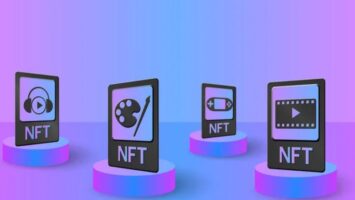With the rapid advances in cryptocurrency and blockchain technology, it’s hard to know what to expect in the next few years. According to the World Economic Forum (WEF), blockchain technology is among the top ten most impactful technologies that will shape the 4th industrial revolution. This means that by 2023, blockchain technology is likely to have established itself as an essential part of our everyday lives. With its potential to revolutionize many industries and improve efficiency, security, and transparency, blockchain technology promises to bring changes to virtually every area of life.
Increased Security and Privacy
One of the key features of blockchain technology is its potential to improve security and privacy. Blockchains use cryptographic methods in order to secure the data stored on them, making them almost impossible to breach by hackers. This makes blockchain technology an attractive solution for storing sensitive data and for conducting secure transactions between two parties without the need for a third-party intermediary. Many governments and businesses are already beginning to take advantage of its superior security measures, and by 2023, more widespread adoption of blockchain technology is likely.
Widespread Adoption and Increased Regulation
In 2021, the number of businesses adopting blockchain technology is looking to increase dramatically. According to the WEF, by 2021, 65% of banks will have adopted blockchain technology to some degree. By 2023, this number is likely to be even higher. However, this growth in adoption is likely to be accompanied by an increase in regulation. Governments around the world have already begun to take steps to regulate blockchain technology and cryptocurrency businesses. For example, the US recently released new regulations that require entities engaged in digital asset activities to register with them. This is likely to be extended to other countries as well, ensuring that blockchain technology is used responsibly and with the utmost security.
Faster and Cheaper Transactions
One of the major benefits of blockchain technology is that it can drastically reduce transaction costs, while also providing much faster transaction times than traditional payment systems. By 2023, blockchains are likely to become more efficient and feature more advanced scalability solutions. This could result in even faster and cheaper transactions, offering users and businesses the opportunity to conduct their financial activities at a fraction of the cost.
Improved Efficiency and Auditing
Because blockchain technology offers a secure and immutable way to store data, it can be used to greatly improve efficiency in many areas. For example, it can be used for supply chain management, allowing companies to precisely track their products from production to delivery. This will not only improve auditing, but it also has the potential to reduce instances of counterfeiting, thus improving brand integrity and customer trust.
Smart Contract Platforms
One of the most promising applications of blockchain technology is the development of smart contract platforms, which are computer programs that can automatically execute the terms of an agreement between two or more parties. Smart contracts offer an unprecedented degree of automation, eliminating the need for manual paperwork and can allow for faster and more secure transfer of digital assets. As blockchain technology continues to evolve, smart contract platforms are likely to become more widespread, with a variety of applications ranging from insurance, to finance, to the management of legal contracts.
Conclusion
Blockchain technology has already begun to revolutionize many industries, and independent experts believe it to be one of the top ten most impactful technologies of the 4th industrial revolution. By 2023, we can expect blockchain technology to be even more widespread, with improved features such as increased security, faster and cheaper transactions, improved auditing, and smart contract platforms. This could have a transformative effect on virtually every area of life, improving efficiency, security, and transparency.
Ainu Token aims to offer impartial and trustworthy information on cryptocurrency, finance, trading, and shares. However, we don't provide financial advice and recommend users to conduct their own studies and thorough checks.



Comments (No)